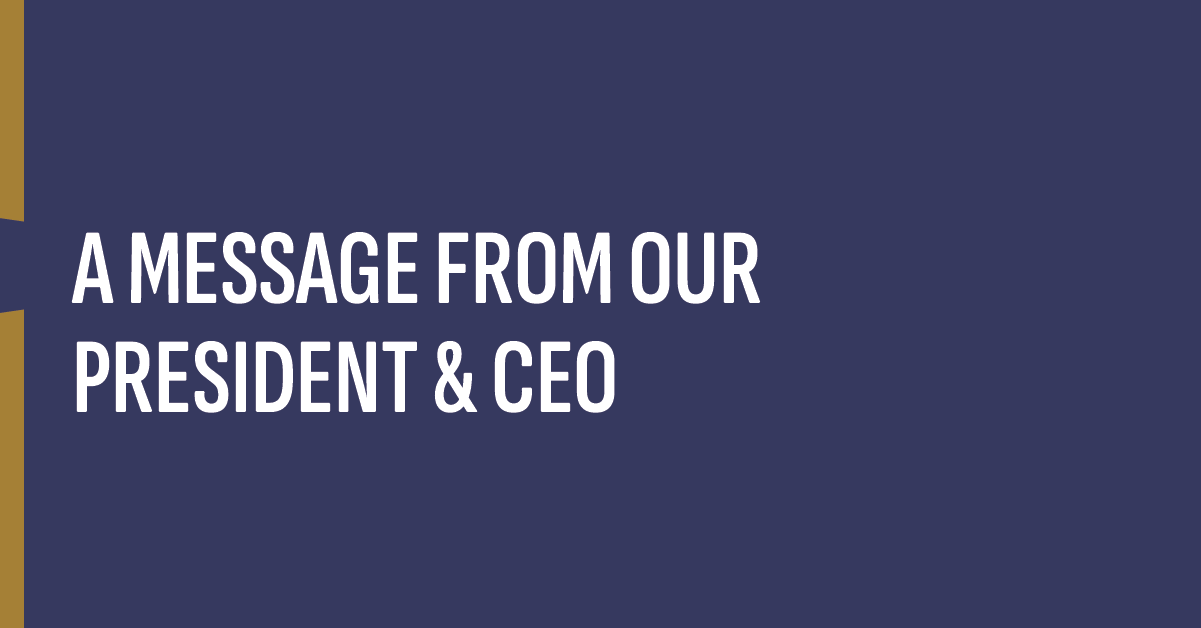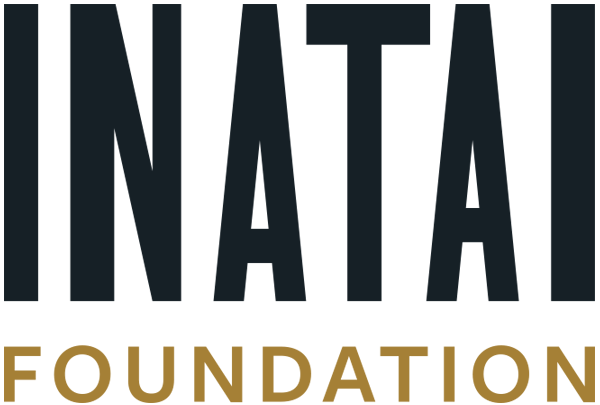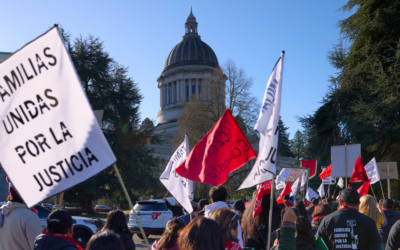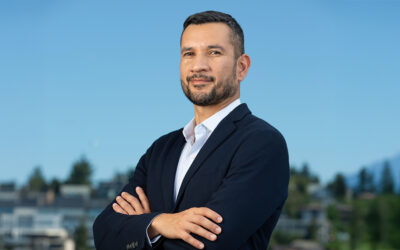Until Feb. 1, 2023, we were Group Health Foundation. This post was written under our former identity. To learn more about our new name, read our announcement here.

Dear friends,
It is hard to believe that just two weeks ago our team was preparing for another round of community visits across Washington. Since then, those in-person meetings have become phone calls and video conferences and, like everyone else, we are in a steady cycle of learn, respond, repeat as more details are reported on COVID-19’s spread. A strength of the response so far has been consistent messaging from local and state public health agencies for us to socially distance ourselves, work from home, and stock up on supplies.
And yet, every time I hear these recommendations, they give me pause. As practical as they are, they make assumptions about who could easily follow them. When we tell families to go buy two weeks’ worth of groceries at a moment’s notice, we ignore the financial reality of many Washingtonians. When we suggest that people simply work from home, we are distancing ourselves from those who live in places without the technology infrastructure to do so. When we tell workers without paid leave to stay home if they feel sick and not acknowledge it means they could lose their homes, we appear out of touch with the very people we should be centering.
Group Health Foundation is a member of the public health community and we agree with the recommendations. We have always named equity as one of our core values, and we would regret—especially in this moment—if we did not act in a way that honors that. Our team has started an Equitable and Response Recovery Fund to strengthen community capacity so that more people can have resources to follow public health recommendations for COVID-19. Because this is an urgent issue requiring an urgent response, we reassigned our staff and in the past five days have made direct grants totaling $5 million so far.
Because this is an urgent issue requiring an urgent response, we reassigned our staff and in the past five days have made direct grants totaling $5 million so far.
We specifically funded organizations who are deeply engaged with people at risk of social isolation; people who are out of work or cannot take time off to care for themselves or loved ones; immigrants and refugees; people with disabilities or who are immunosuppressed; Black, Indigenous, and people of color; and communities who need culturally specific or non-English information to prevent spread. We also funded a number of nonprofits led by and serving people of Asian descent, who are experiencing an increase in anti-Asian racism because of reprehensible reporting and rhetoric about COVID-19.
We are grateful to grantees who spent time telling us their concerns as they work to serve communities in response to the pandemic. One housing provider told us a majority of their families earn incomes from the restaurant and hotel industries, and many are—or soon will be—unemployed or underemployed. Another grantee is working to organize affordable childcare for out-of-school students whose parents do not have the option to work from home. A nonprofit told us they are worried for some of their clients, for whom isolation would set back progress made in therapy.
As a foundation, we take our privilege seriously. We understand we are not on the front lines like so many nonprofit workers, in-home care aides, grocery store clerks, cleaning staff, and health care providers. We also admit we are not the experts at this time on how to organize resources and services. What we do know is many organizations who are embedded in their communities saw the challenges coming and began to take action even before the pandemic was officially declared last week. To many communities, inequity is not a concept they talk about, but a very real thing they experience every day; this outbreak just compounds it.
To many communities, inequity is not a concept they talk about, but a very real thing they experience every day; this outbreak just compounds it.
We must therefore trust community wisdom to drive solutions for response and recovery. One of our strengths is the relationships we hold with communities all over Washington. It has allowed us to be swift and flexible as funders. We have not asked our grantees for proposals or set restrictions for how they use their funds, and we are prioritizing regions without deep philanthropic resources and organizations without large donors or corporate contributors. As our team continues to learn and respond, we are thinking about the pandemic’s long-term impact. A starting guide for me, personally, is NAACP’s equity implications for COVID-19. In future messages, you’ll learn more details about how we will support grantees during this time.
The pandemic has reminded me how interconnected we are, and how our health depends on the health of every member of the community. We do not know what the coming months will hold, but I think it is fair to say we are experiencing together something that will forever change us. One of these changes, I hope, is that we will develop the collective consciousness and courage to bring forward a set of policy and advocacy efforts to address systemic inequities, and ensure that when the next emergency hits we are better prepared to support the most vulnerable in our communities.
In gratitude,
![]()
Nichole June Maher
President and CEO
Group Health Foundation



